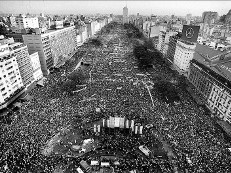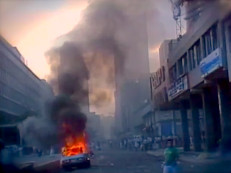For this week, I decided to write about Chile. Chile is in the middle of a decisive moment as students went to the streets to protest against a rise in metro costs. The unrest is surprising as Chile lauds itself for being one of the most prosperous countries in Latin America. For my articles this week, I picked two opinion peaces that look into the nuances of the situation.
The first piece, by the New York Times, titled Chile Learns the Price of Economic Inequality, examines the protests in the context of economic prosperity. While the Chilean economy is quite strong, the economic inequality means that only a few benefit from the wealth. Public spending on hospitals, public welfare, and more general methods of distributing wealth are virtually nonexistent. The article also points out that while the protesters began their movement after the rise in bus fare, tensions have existed for a long time due to this evident wealth inequality. The wealth gap in Chile is incredibly visual; Santiago has a district called Sanhattan, a reflection of its large buildings and prosperous wealth similar to Manhattan. Yet outside city limits are shanty towns and public works projects that are falling apart. This piece did take a critical angle of those involved in the protest because of their destruction of property yet I think that this interpretation ignores the power of the upper class and also the human rights violations of the Chilean government.
The second piece I looked at was posted today by Al Jazeera as an update surrounding government mentality and response to protest. A senator this week was quoted saying that human rights violations are and will be necessary to restore order in Chile. This senator, Andres Allemand has a close relationship to the president sparking massive amounts of concern. The protests have already gotten violent with 26 dead and 2,300 injured; unchecked military responses would only further casualties. Rather than attempting to create policies that could alleviate economic inequality, the government is more interested in using force to subdue the public. I feel like this will only create more distress and larger protests as the public will continue to have concrete reasons on why the government is failing them. Protests and revolutions are hard to stop with force; people are incredibly resilient and will always find small forms of resistance.



